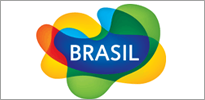Venezuela: Venezuela Health Profile 2012
2012/04/06
Venezuela Health Profile 2012
Social safety nets The Venezuelan Social Security Institute runs most of the country’s hospitals, a network of clinics and a social security scheme that includes pensions, health care, and unemployment benefits. The pay-as-you-go pension scheme covers roughly 60% of formal employment but only one-third of the labor force; workers in the informal sector and agriculture are largely excluded. Pensions are due after 750 weeks of work and are flat, about $370 at the official exchange rate. In addition, separate pay-as-you-go-schemes in the public sector, which cover education, the military and the oil industry – offer generally far better conditions than the basic national scheme. Workers in the shadow economy are not covered.
Equal opportunity The eradication of systemic exclusion was one of President Chavez’s most important arguments in the 1998 presidential election. His strategy for combating exclusion through so-called social “missions” has produced excellent results on the symbolic front. People now feel included, at least in the president’s discourse. This view is supported by public opinion. More than half of Venezuelans – by far the largest proportion in any Latin American country – think that income distribution is just, despite the fact that the gap between the poorest and the richest has widened and the GINI coefficient has improved only marginally. The practical impact of the missions is at best mixed. While consumer-oriented schemes of subsidized food stores run by the state or the oil company undoubtedly help people to cope with runaway inflation, the health care and education missions are harder to assess. According to recent studies by the Caracas-based Centre for Development Studies, the missions’ impact in indexes such as infant and maternal mortality or quality of education has been at best ineffectual, because funds are channeled towards the missions and away from hospitals and educational institutions. The missions’ main problems are that they do not create social entitlements and lack oversight. The programs depend directly on the presidency for direction and budget. They exist beyond parliamentary control or audit. A gender equity law is under discussion in the National Assembly. Women are underrepresented in senior political and business management (27%), but overrepresented in professional positions (61%); they earn only 53% of the corresponding male incomes.
- Venezuela News
-
- VENEZUELA: State of emergency declared in Venezuela to counter "US and domestic threats"
- VENEZUELA: Venezuela's socialists threaten opposition's landmark majority
- VENEZUELA: Opposition ends decades of socialist rule in Venezuela
- AFGHANISTAN: Global growth will be disappointing in 2016: IMF's Lagarde
- VENEZUELA: Assessing Venezuela’s Elections: The Good, the Bad, and the Indifferent
- GUYANA: Mexico ready to purchase Guyana rice following Venezuela's refusal to renew exchange accord
- Trending Articles
-
- FRANCE: War! Tourists from England, Russia and France involved in bloody fighting
- NIGERIA: Lagos hosts 2016 Africa fashion week Nigeria
- ISRAEL: Israel's tech boom under threat
- THAILAND: Foreign investment plummets in junta ruled Thailand
- KENYA: Nairobi to host 14th UN conference on trade and development
- PHILIPPINES: Will services continue to drive the Philippine economy?






